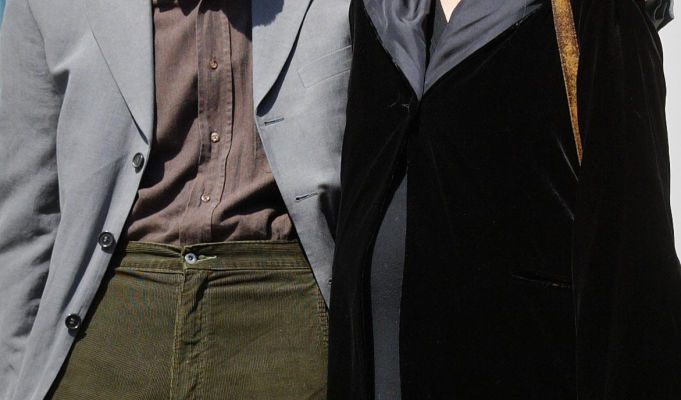
In 2006, a shocking revelation sent ripples across the world — a 62-year-old child psychologist had just become a mother, making history as the oldest woman in the UK to give birth.
Her story ignited fierce controversy. Was it a triumph of science or a reckless gamble? Critics and supporters clashed, but one thing was certain — her journey was anything but ordinary.
Now, years later, a devastating update has surfaced… and it’s the news no one wanted to hear.
In 2006, images flooded the media — pictures of a 62-year-old woman cradling a newborn. She looked like any loving grandmother, but the headlines told a different story. Dr. Patricia Rashbrook, a respected child psychologist, had just become a mother, making history as the oldest woman in the UK to give birth.
It was a story that stopped the world in its tracks.
But was was this a miracle of modern medicine or a reckless defiance of nature?
A controversial journey to motherhood
Patricia and her husband, John Farrant, from Lewes in East Sussex, had longed for a child together. Though Patricia already had three grown children from a previous marriage, she and John felt something was missing.
“From the moment I met John, it felt like there existed a baby-shaped space between us,” Patricia shared.

In 2006, a shocking revelation sent ripples across the world — a 62-year-old child psychologist had just become a mother, making history as the oldest woman in the UK to give birth.
Her story ignited fierce controversy. Was it a triumph of science or a reckless gamble? Critics and supporters clashed, but one thing was certain — her journey was anything but ordinary.
Now, years later, a devastating update has surfaced… and it’s the news no one wanted to hear.
In 2006, images flooded the media — pictures of a 62-year-old woman cradling a newborn. She looked like any loving grandmother, but the headlines told a different story. Dr. Patricia Rashbrook, a respected child psychologist, had just become a mother, making history as the oldest woman in the UK to give birth.
It was a story that stopped the world in its tracks.
But was was this a miracle of modern medicine or a reckless defiance of nature?
A controversial journey to motherhood
Patricia and her husband, John Farrant, from Lewes in East Sussex, had longed for a child together. Though Patricia already had three grown children from a previous marriage, she and John felt something was missing.
“From the moment I met John, it felt like there existed a baby-shaped space between us,” Patricia shared.
Both she and John were approaching retirement age, but still felt energetic enough to care for a baby. However, traditional fertility treatments in the UK had turned them away — most clinics refuse treatment to women over 55.
Determined, they sought out Italian fertility expert Professor Severino Antinori, a controversial figure known for helping postmenopausal women conceive.
After four failed IVF attempts in Italy, the couple turned to Russia, where Patricia underwent another round of treatment using a donor egg. The procedure wasn’t cheap — Patricia reportedly paid the equivalent of $12,000 for the chance to become a mother again. And finally, it worked.

On July 5, 2006, Patricia gave birth to a healthy baby boy, Jude, via C-section. As she and John welcomed their son, Elgar’s Salut d’Amour played in the background —the same piece of music that had been played at their wedding.
“We would not have gone ahead if we’d felt we would not be good enough parents,” Patricia insisted.
For John, the moment was overwhelming.
“I was struck by his beauty in miniature, his perfection,” he recalled. “Before his birth, I thought I would weep copious tears, and goodness knows I brought along enough hankies, but when I first saw him I was awestruck. I thought: ‘Here he is after all this waiting, and we’ll be together forever because I’m his daddy.’”
Inside the brutal backlash
Today, having children later in life is more accepted. In fact, for the first time in 2023, more women over 40 gave birth in the U.S. than teenage girls.
But back in 2006, many people wasn’t ready for Patricia’s story.
The backlash against Patricia Rashbrook was swift and brutal, with critics harshly condemning her decision to become a mother at 62. As a child psychiatrist, it was suggested that Dr. Rashbrook should have known better.
Some even called her decision ”undignified” and ”absurd”.
Jon Gaunt, writing for The Sun, didn’t hold back, declaring: “The news that the selfish 62-year-old, Patricia Rashbrook, has ‘given birth’ to a baby boy makes me sick to the pit of my stomach.”
Karren Brady, in the Birmingham Mail, dismissed the idea entirely, comparing Rashbrook to aging rock stars who father children late in life.
“I know that there are wrinkly old rockers like Michael Douglas, Rod Stewart, and Mick Jagger who are fathers to young children, but they are because they can be. Women of the same age aren’t because they can’t be. Or shouldn’t.”
Josephine Quintavalle of the lobby group Comment on Reproductive Ethics slammed the couple’s choice: “It would be difficult to find anybody in this country who thinks it’s a good idea, and I don’t think it’s an example to be followed.”
It seemed that even Patricia’s own cousin, Valerie Rashbrook, struggled to understand her decision.
“I’m the same age as Patricia and when I look after my grandchildren I’m tired after 10 minutes because of all the mischief they cause… I really don’t know how she is going to manage looking after a newborn child,” she told newspapers.
“In 2007, with the birth of his son Jude, John’s life took a different and joyous turn, as he added fatherhood to his already wide skillset. I suspect that it gave him more pleasure and satisfaction than any of his former achievements.”

Patricia Rashbrook remains one of the most controversial tales in the history of fertility treatments.
Was she a trailblazer who proved that age should never be a barrier to parenthood? Or was this an ethical line that should never have been crossed? Share your opinion in the comment section.


